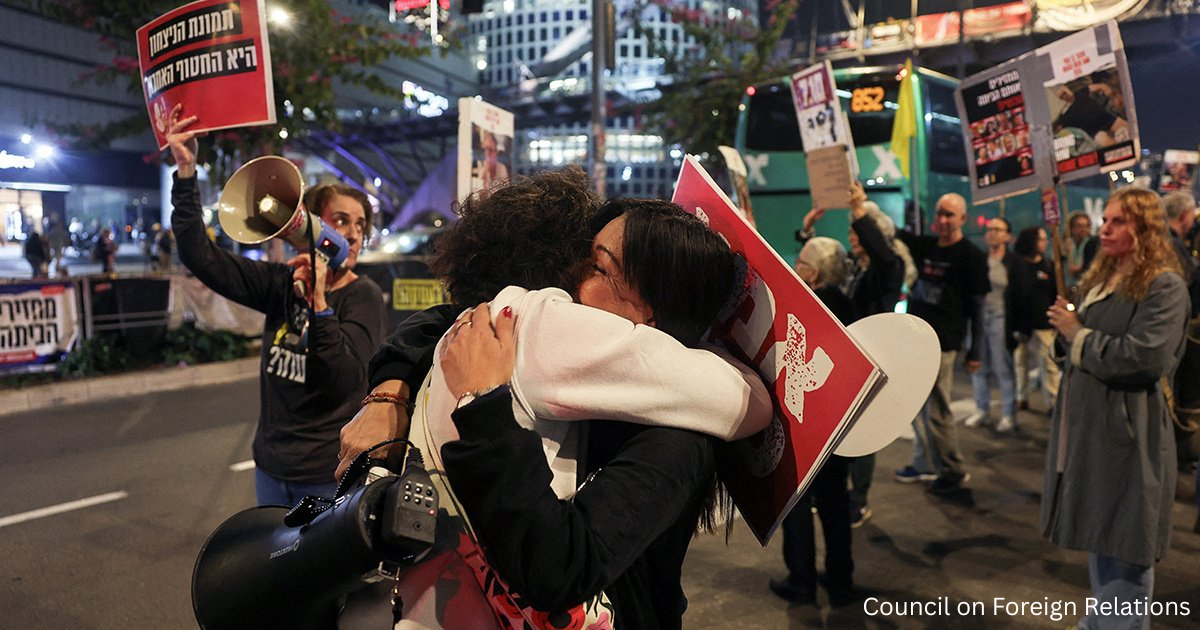Hamas’ recent statement indicating its willingness to release the remaining hostages in Gaza reflects a strategic move aimed at ending the nearly two-year-long conflict. According to Ibrahim Madhoun, a Palestinian analyst close to Hamas’ leadership, the decision signals that the group is seeking to build goodwill with both former President Donald Trump and Arab nations that have been urging the release of hostages. This development highlights the interplay between humanitarian considerations and strategic diplomacy in the ongoing Gaza crisis.
Hamas’ Prioritization of Peace Efforts
Madhoun emphasized that Hamas’ focus on hostage release illustrates the group’s interest in advancing toward ending hostilities. By emphasizing the safe return of hostages, Hamas is demonstrating a willingness to engage in gestures that could foster trust among international mediators and stakeholders.
Key aspects of this prioritization include:
- Ending the Conflict: Demonstrating commitment to cease-fire and peace negotiations after nearly two years of warfare.
- Humanitarian Considerations: Addressing the urgent safety and well-being of hostages as a priority over political or military gains.
- International Messaging: Sending a signal to the global community that Hamas is willing to take steps that align with broader peace efforts.
This combination of strategic calculation and humanitarian attention underscores the complex motivations behind Hamas’ recent statements.
Building Goodwill with Key Actors
Madhoun noted that the statement also serves to cultivate goodwill with influential parties, particularly Trump and Arab nations. By aligning its actions with international calls for hostage release, Hamas aims to improve its standing in ongoing negotiations and diplomatic discourse.
The benefits of this approach include:
- Enhanced Diplomatic Leverage: Demonstrating cooperation can improve Hamas’ negotiating position in future talks.
- Strengthening Regional Relationships: Appeasing Arab nations that have advocated for humanitarian intervention can build regional trust.
- Framing Narrative: Presenting the group as responsive to international pressure may soften criticism and shape perceptions in its favor.
This strategic dimension indicates that hostage release is not solely a humanitarian concern, but also a carefully considered political maneuver.
Humanitarian Significance of Hostage Release
The potential release of hostages carries profound humanitarian implications. Families who have endured prolonged uncertainty would finally see relief, and the move could contribute to reducing civilian suffering in Gaza.
Hamas’ emphasis on hostages also acknowledges the moral and ethical pressures that have been mounting internationally, with human rights organizations and governments calling for safe, unconditional release.
By prioritizing hostages, Hamas simultaneously addresses moral imperatives and practical diplomatic objectives, balancing internal political goals with international expectations.
Regional and International Implications
The statement further signals the importance of regional and international stakeholders in the Gaza conflict. Arab nations have played a crucial role in mediating dialogue and urging compliance with cease-fire proposals.
Hamas’ move to signal goodwill can be interpreted as a calculated response to:
- Arab Mediation Efforts: Strengthening ties with countries like Egypt, Qatar, and Jordan involved in facilitating discussions.
- Global Pressure: Addressing calls from the U.S. and other international actors to de-escalate the conflict.
- Strategic Visibility: Ensuring its actions are visible to key decision-makers and diplomats monitoring the crisis.
These elements underscore that humanitarian gestures can also serve as strategic tools in complex international negotiations.
Expert Perspective
Ibrahim Madhoun’s insights highlight how Hamas balances multiple priorities. According to him, the decision to release hostages is not purely humanitarian, but also a method of demonstrating responsiveness and credibility to international and regional partners.
Madhoun explained:
“The decision underscores Hamas was trying to build ‘goodwill’ with President Trump and the Arab world, which have called on the militant group to release the hostages.”
This perspective provides valuable context for understanding Hamas’ actions beyond their immediate humanitarian impact.
Challenges Ahead
While the willingness to release hostages is promising, several challenges remain:
- Verification and Security: Ensuring safe transfer and release of hostages.
- Political Negotiations: Aligning terms with Israel and international mediators to avoid renewed conflict.
- Implementation: Translating statements of intent into concrete actions requires coordination, oversight, and trust-building among multiple parties.
The success of this initiative will depend on careful diplomacy, transparent monitoring, and adherence to agreed conditions.
Conclusion
Hamas’ statement on hostage release illustrates a delicate balance between humanitarian priorities and strategic diplomacy. By prioritizing the end of hostilities and signaling goodwill toward Trump and Arab nations, the group seeks to foster trust and credibility while addressing moral and political imperatives. The move highlights the complex interplay of humanitarian, political, and regional considerations in resolving the Gaza conflict, offering a potential pathway toward de-escalation and future negotiations.
%20(4).png)




